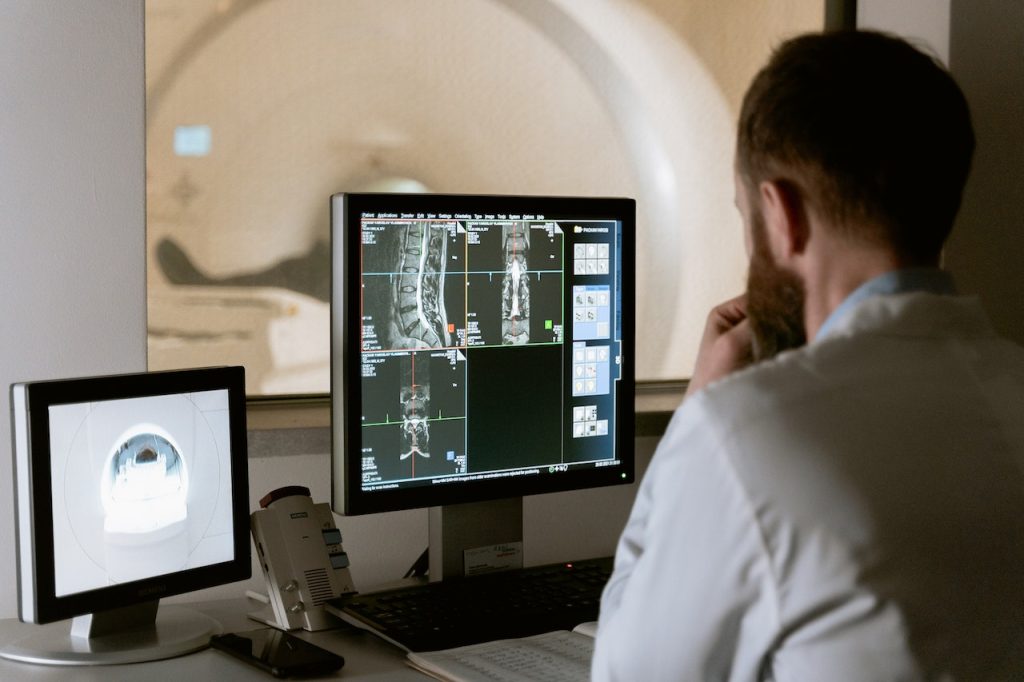Orthopedics is a field of medicine that deals with the prevention or correction of injuries or disorders of the skeletal system and associated muscles, joints, and ligaments. This complex and diverse system of the body, includes your bones, joints, ligaments, tendons, muscles, and nerves that collectively allows you to move, and be active.
Orthopedics used to be exclusively devoted to the care of children with spine and limb deformities, but they now care for patients of all ages. Their areas of treatment include: from newborns with clubfeet, to young people with broken bones, professional athletes requiring arthroscopic surgery and seniors with arthritis.
The body’s 206 bones offer all sorts of issues and conditions that can cause a need for medical attention. If you consider the complexity of a hand, or shoulder, this gives you an insight into the many issues an orthopedist might encounter. The vast majority of orthopedists are general practitioners, but some specialize in areas including: total joint reconstruction, hand, sports medicine, foot, orthopedic oncology, pediatric orthopedic oncology, pediatric orthopedics and the spine.
Orthopedic surgeons like Dr. James Devellis are the specialists who examine, diagnose and treat diseases and injuries of the musculoskeletal system. Their primary focus is of course on those areas of the body that allows for movement and their tools are surgery, physical therapy and corrective mechanical devices.
With an aging population that has mobility issues at the top of its health problem areas, orthopedic surgeons are in high demand. The aging process brings about wear and tear of joints with these degenerative changes making the elderly ever more susceptible to injuries such as disc protrusion or thoracic herniated disc. Competition for orthopedic residency programs over the past decade has been the most pursued of all residencies over the last decade. With the greatest specialty sought to be sports medicine, rehabilitation, and pediatrics. It is a large and growing field, especially in urban areas.
Orthopedics will normal have an area of specialization and a deep knowledge and skill in that area. These most often include: Hand, spine or foot surgery, joint reconstruction; pediatric orthopedics, and sports medicine. A popular area for orthopedic surgeons is also oncologic orthopedics focusing on the diagnosis and treatment of tumors and tumor-like conditions which can grow in the soft tissues of the musculoskeletal system. There are also orthopedic trauma surgeons who treat serious injuries sustained in an accident. Each of these maladies may require surgery or the utilization of a mechanical device to aid in the patient’s recovery or replacement of mobility.
The job of the orthopedic surgeon is a collective one, requiring dependence on and consultation with a range of other health care professionals working on the same patient. The orthopedic surgeon will rely on a radiologist’s expertise for accurate and thorough MRI’s. X-rays, radiography, and ultrasounds. He must coordinate closely both before and after any procedures performed with a physical therapist and physiotherapist and both must fully understand the Orthopedists plan and approach, so they can create and coordinate their therapies for the best benefit of the patient. This group and many others are vital partners in the procedures and care provided by the orthopedic surgeon.
It should not be hard to guess that orthopedic surgeons can expect to work more than sixty hours each week and be prepared to be on call for patients at all hours.

